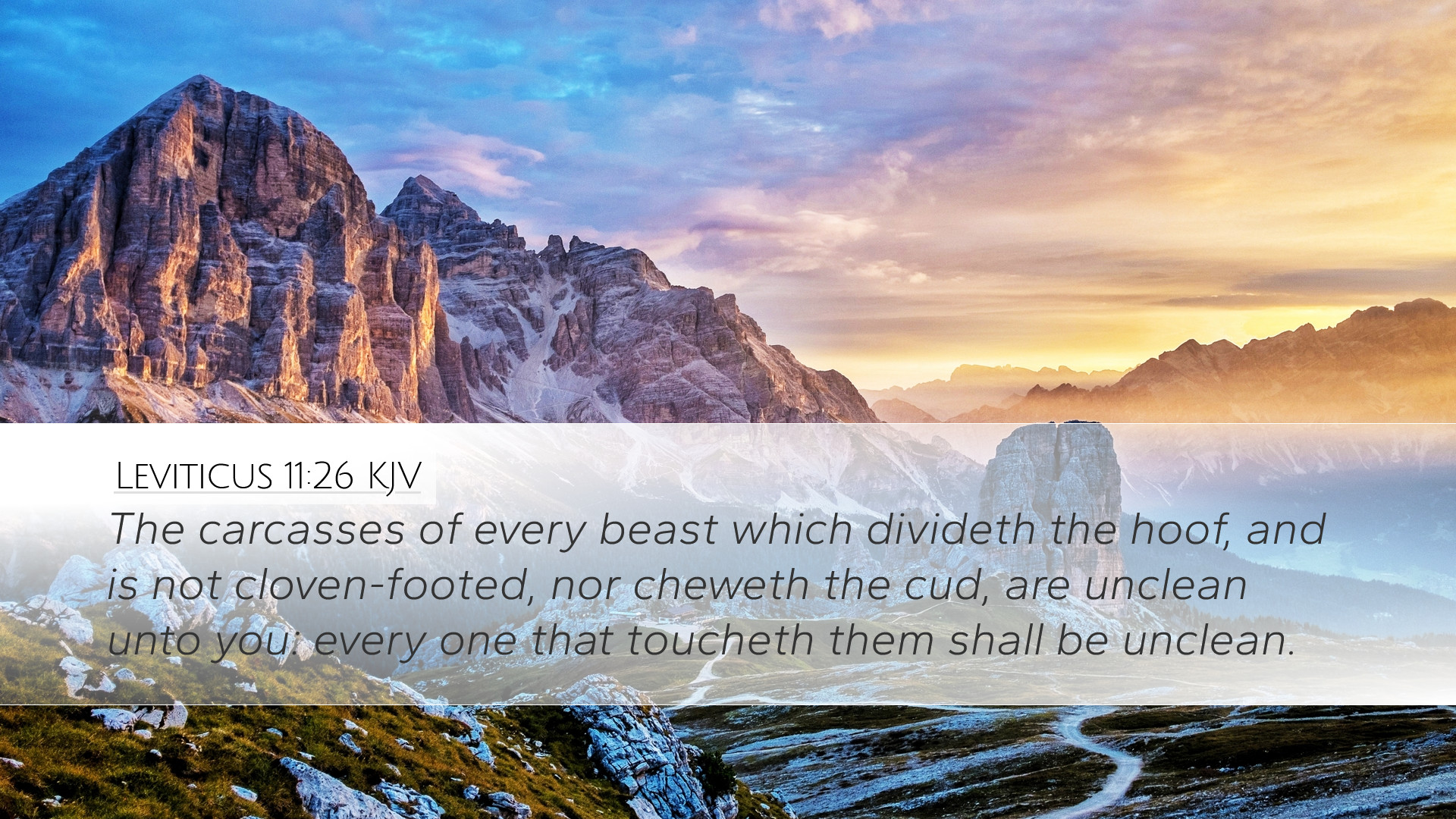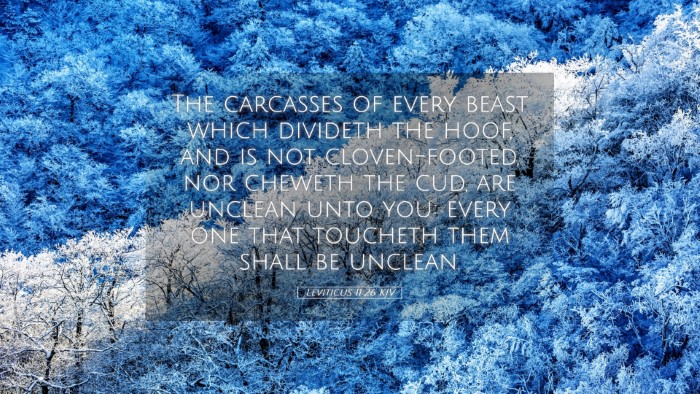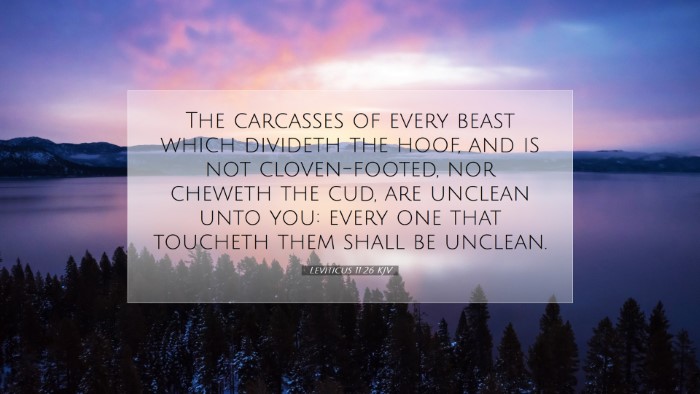Leviticus 11:26 - A Comprehensive Commentary
Leviticus 11:26 states: "The animals that divide the hoof and are not cloven-footed, or do not chew the cud, are unclean to you." This verse is part of the Holiness Code, presented to the Israelites to distinguish between clean and unclean animals. The implications of this command are multi-faceted and merit a thorough examination.
Contextual Analysis
The broader context of Leviticus chapters 11-15 deals with dietary laws, focusing on what the Israelites should consider clean and unclean for consumption. These regulations were given by God to shape the identity of His people, emphasizing holiness, separation from surrounding nations, and obedience to divine commandments.
Theological Insights
This verse presents critical theological principles that resonate throughout the Scriptures. The distinction between clean and unclean can be understood as a metaphor for the moral and spiritual state of humanity. Just as the Israelites were to avoid unclean animals, believers are called to abstain from sin and corruption.
- Holiness: The command for dietary laws underscores the call to holiness. As emphasized by Matthew Henry, these laws serve to instill a sense of reverence for God's holiness in every aspect of life.
- Obedience: Albert Barnes notes that adherence to these laws was a demonstration of obedience to God, integral to the covenantal relationship established between God and Israel.
- Symbolism: Adam Clarke expands the understanding of clean and unclean as symbolic of spiritual truths; clean animals represent purity and righteousness, while unclean animals symbolize sin.
Exegesis of Key Terms
To fully grasp the teachings of Leviticus 11:26, an analysis of key terms is necessary:
- Divide the hoof: Indicates a physical trait associated with animals that are clean for consumption. This is linked to the necessity of a proper categorization of the animals for sacrifice and dietary practices.
- Cloven-footed: Animals that have a split hoof are considered clean. The significance can be seen in how God requires a particular presentation of animals for His purposes, which reflects his demand for righteousness in His people.
- Cud: Chewing the cud symbolizes reflection and contemplation on God's law. Those who chew the cud remind believers to meditate upon and internalize spiritual truths.
Applications for Today
While the ceremonial laws outlined in Leviticus may not apply directly to believers today, there are fundamental principles that remain relevant:
- Spiritual Purity: As noted by Matthew Henry, the call to separate oneself from unclean things extends beyond diet, urging believers toward a lifestyle that honors God.
- Understanding God’s Character: Through these specifications, we gain insight into God's character as one that desires purity and holiness. Albert Barnes emphasizes that these distinctions help believers understand their spiritual responsibilities.
- Reflective Living: In line with the symbolic meaning of chewing the cud, Adam Clarke asserts the importance of thinking deeply about one’s spiritual life and maintaining practices that keep one spiritually nourished.
Final Thoughts
As scholars, pastors, and students of Scripture engage with Leviticus 11:26, they are called to consider its implications in a contemporary context. The call to discern between clean and unclean echoes throughout the biblical narrative, pointing readers toward a deeper understanding of holiness, obedience, and the nature of God. The insights provided by Matthew Henry, Albert Barnes, and Adam Clarke serve as valuable resources for grappling with these timeless truths.


